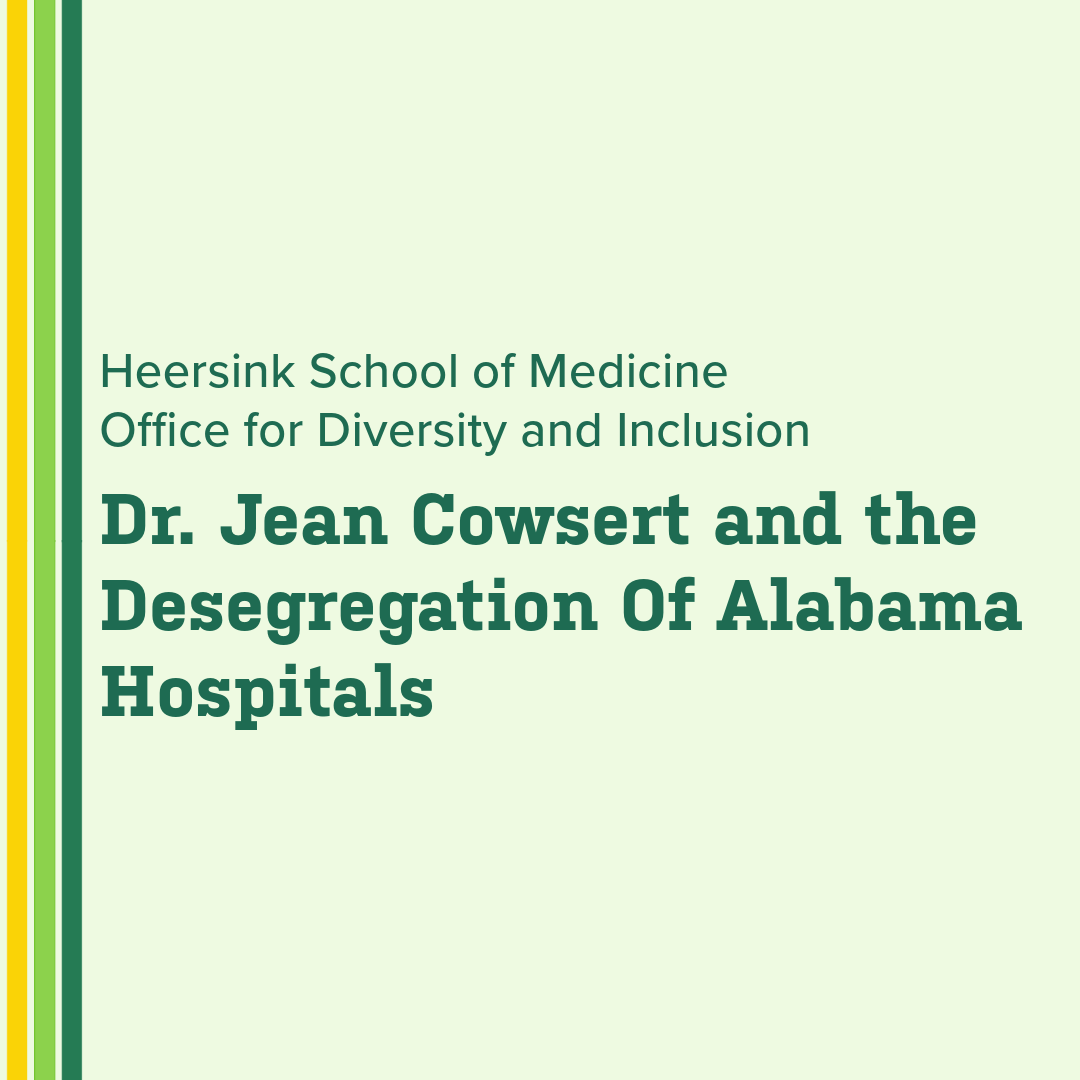 This month, during Women’s History Month, the Office for Diversity and Inclusion is partnering with the School of Public Health to honor Jean Cowsert, M.D., a physician who once walked the halls as a University of Alabama at Birmingham student.
This month, during Women’s History Month, the Office for Diversity and Inclusion is partnering with the School of Public Health to honor Jean Cowsert, M.D., a physician who once walked the halls as a University of Alabama at Birmingham student.
Diverging from many of her contemporaries in Mobile, Jean Cowsert distinguished herself as an active opponent of discriminatory practices rather than a passive adherent.
In 1954, she secured the top position in her medical school class, coinciding with the landmark Brown decision.
Out of 60 students, she was one of only two women. By 1965, Cowsert, earning the respect of her male colleagues, assumed the role of the first female president of the medical staff at Providence Hospital nearby.
The hospital's administrator acknowledged her instrumental role in desegregating the hospital's floors, highlighting that she nearly single-handedly accomplished this, and no one dared to challenge her.
The American Journal of Medicine reports, “As the sun rose on January 30, 1967, Jean Cowsert, MD's body lay crumpled by her front steps in Mobile, Alabama. She had been working late, at the kitchen table, when a rock crashed through the window. Armed with her revolver, she went to investigate. The Mobile coroner concluded that the cause of death was a single bullet to the chest and, lacking witnesses, classified the death as an “accident.” His report and that of the police investigation disappeared.”
Cowsert was a part of the Infirmary’s medical staff. She would frequently attend meetings discussing racially limited admissions, expressing concern to the Office of Equal Health Opportunity (OEHO).
In June 1966, she joined a White House meeting with President Johnson on Medicare, emphasizing adherence to Title VI. A rare Mobile attendee, Cowsert became a crucial OEHO ally against the Infirmary.
When Medicare started on July 1, 1966, a part of the Infirmary closed due to the absence of Medicare patients, causing tension in Mobile.
Despite risks, Cowsert continued attending meetings and informing investigators until her cover was exposed in January 1967. A few days later, she was found dead.
Following her death, revealed by the Infirmary's boss to OEHO, payments for Medicare patients began just two days later.
Join an event to honor Cowsert's legacy
Participate in honoring the legacy of Jean Cowsert, M.D., at an event hosted by the Heersink School of Medicine Office for Diversity and Inclusion and the School of Health Professions on Tuesday, March 19 from noon until 1:30 p.m.
Listen to a panel conversation with David Burton Smith, Ph.D., the author of the recently released book "Malicious Intent: Murder and the Perpetuation of Jim Crow Health Care." Raegan Durant, M.D., MPH, and Christy Harris Lemak, Ph.D., FACHE, will join the discussion. Lunch will be provided for attendees. To learn more or to register for the event click here.
Explore the Office for Diversity and Inclusion's events page for other upcoming events.